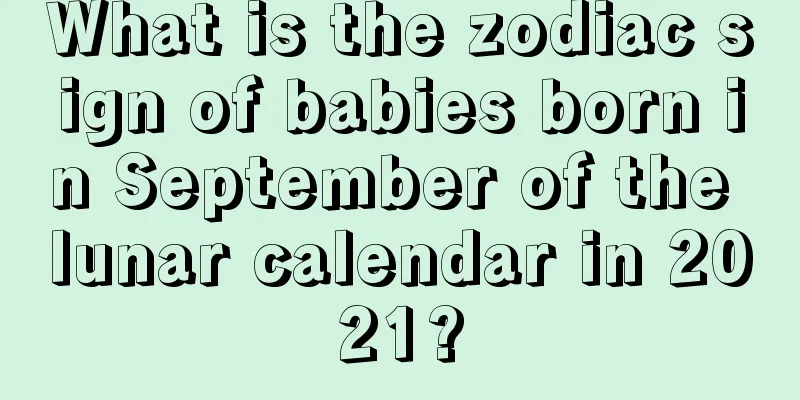What are the customs of the 23rd day of the twelfth lunar month in 2018? What day is it?

Introduction: The twelfth lunar month is the last month in our lunar calendar, and it has many traditional days. The 23rd day of the twelfth lunar month is one of them. So what are the customs of the 23rd day of the twelfth lunar month in 2018? The Chinese New Year is a very important festival in China. Fortune Teller.com has carefully prepared some relevant knowledge about the 2018 Chinese New Year and New Year’s Eve for you. Let’s take a sneak peek!What are the customs of the 23rd day of the twelfth lunar month in 2018?Worship the Kitchen GodThe day of Little New Year is also the day for people to worship the kitchen god. According to folklore, every year on the 23rd day of the twelfth lunar month, the Kitchen God goes to heaven to report the good and bad deeds of the family to the Jade Emperor, who will reward or punish them. Therefore, when sending off the Kitchen God, people put candies, clean water, beans and hay on the table in front of the Kitchen God statue. Among them, the last three are preparations for the Kitchen God's mount for his ascension to heaven. When offering sacrifices to the Kitchen God, you would melt Guandong sugar with fire and apply it on the Kitchen God's mouth. In this way, he could not speak ill of him to the Jade Emperor. There is a folk custom that "men do not worship the moon, and women do not worship the Kitchen God", so worshiping the Kitchen God is limited to men. In addition, on the night of New Year’s Eve, the Kitchen God will come to the human world with other gods to celebrate the New Year, and there will be ceremonies of "welcoming the Kitchen God" and "welcoming the gods" on that day. After every household burns sedan chairs and horses, pours three cups of wine and sends off the Kitchen God, it is then their turn to worship their ancestors.Sweep the dustAfter the 23rd, there are only six or seven days left until the Spring Festival, and preparations for the New Year seem more intense. The room should be cleaned thoroughly, commonly known as sweeping the dust. The purpose of sweeping the dust is to get rid of the old and welcome the new, and to remove bad luck. Every household must clean carefully and thoroughly to make sure the windows and tables are clean. Painting the walls, cleaning the glass, pasting stained glass windows, putting up New Year pictures, etc.Cutting paper-cutsAmong all the preparations, cutting and pasting paper-cuts is the most popular folk activity. The contents include various stories about animals and plants, such as magpies climbing on plum trees, swallows flying through peach and willow trees, peacocks playing with peonies, lions rolling embroidered balls, three sheep (yang) bringing good luck, two dragons playing with pearls, deer, cranes, tung trees and toon trees (six harmonies in spring), five bats (blessings) holding longevity, rhinoceros looking at the moon, lotus (continuous) years with fish (yu), mandarin ducks playing in the water, Liu Hai playing with golden cicadas, the two immortals of harmony and unity, etc.Pasting Spring Festival coupletsEvery household writes Spring Festival couplets. People believe that Spring Festival couplets must be posted wherever there are gods, on every door, and on every object, so there are the most of them and they have the most comprehensive content. The couplets before the gods are particularly exquisite, and are mostly words of admiration and blessing. Common ones include couplets for the gods of heaven and earth: "Heaven's grace is as deep as the sea, and the earth's virtue is as heavy as a mountain"; couplets for the god of land: "White jade grows in the soil, and gold comes out of the ground"; couplets for the god of wealth: "The lord of wealth in heaven, the god of fortune and luck on earth"; couplets for the god of well: "The well can connect to the four seas, and the home can reach the three rivers." The Spring Festival couplets hanging in granaries, animal pens and other places express warm congratulations and hopes. Such as "a bumper harvest of grains and thriving livestock", "rice and flour as thick as mountains, oil and salt as deep as the sea", "cows are like tigers in the South Mountains, horses are like dragons in the North Sea", "the big sheep are thriving year by year, the little lambs are increasing month by month", etc. There are also some single couplets, such as "Look up and see happiness" in every room, "Go out and see happiness" opposite the door, "Prosperous energy soars to the sky" on the fire, "The yard is full of gold" in the yard, "Deep roots and lush leaves" on the tree, "White tiger brings good luck" on the millstone, etc. The couplets on the front door are the face of a family and are given special attention. They may be lyrical or descriptive, with rich content and witty words.BathingBoth adults and children need to take a bath and have a haircut. There is a saying among the people that "Whether you have money or not, you should get a haircut during the New Year." In Luliang area, people pay attention to washing feet on the 27th day of the twelfth lunar month. That evening, the mother-in-law and the children all washed their feet with boiling water. For ignorant girls, adults should also help them wash their feet clean to leave no dirt. There is a folk saying that goes, "On the 27th day of the twelfth lunar month, all wives and children should wash their feet. If one person does not wash his feet, he will have pus and watery feet for seven months."marriageAfter the 23rd, people believe that the gods have gone to heaven and there are no taboos. There is no need to choose a date to marry a wife or a daughter, which is called a hasty marriage. There are a lot of wedding ceremonies held until the end of the year. There is a saying in the folk song, "At the end of the year, villages are busy with weddings, and Yichun’s invitations are sent to celebrate the spring. Sisters whisper to each other in front of the lamp, and this year’s staying up late is the bridal chamber."What day is the 23rd day of the twelfth lunar month in 2018?The 23rd day of the 12th lunar month is also known as Little New Year's Eve. It is the day for worshiping the kitchen god, sweeping the house, and eating kitchen sugar in traditional Chinese culture. The folk song "Twenty-three, sticky sugar melons" refers to the Kitchen God worship on the twenty-third or twenty-fourth day of the twelfth lunar month every year. There is a saying that "officials worship on the twenty-third, common people on the fourth, boatmen on the fifth" or "officials worship on the third, common people on the fourth, monks and Taoists on the fifth", that is, government officials worship on the twenty-third day of the twelfth lunar month, ordinary people on the twenty-fourth, and boatmen or temples or Taoist temples on the twenty-fifth day. Later it gradually evolved into the saying "On the 23rd, celebrate the Little New Year".Summary: The above content is about [What are the customs of the 23rd day of the twelfth lunar month in 2018? What day is it? 】Problem analysis, hope it can help everyone! |
>>: What festival is on the 23rd day of the twelfth lunar month in 2018? What is Xiaonian?
Recommend
Which day in August of the lunar calendar in 2021 is suitable for marriage? Which day is an auspicious day for marriage?
The eighth month of the lunar calendar is approach...
Which days should you avoid if you want to sign a contract in November 2019?
Which days should you avoid if you want to sign a ...
What about the Dragon Boat Festival in 2018? Is it a good time to worship ancestors on the Dragon Boat Festival in 2018?
Introduction: Sacrifice is a traditional custom in...
Is April 14th of the lunar calendar in 2021 an auspicious day? Can I install a new bed?
The fourth month of the lunar calendar officially ...
Is it auspicious to pick up the car on December 18th of the lunar calendar in 2019? Check the auspicious day to pick up the car!
Picking up a new car is a happy thing, but don’t ...
Is Double Ninth Festival the Ghost Festival? What is the Double Ninth Festival?
The ninth day of September is the Double Ninth Fes...
What is the fate of a girl born on November 18th of the lunar calendar in 2018?
Many babies are born every day, and everyone’s des...
Is it a good time to renovate on July 23rd of the lunar calendar, the beginning of summer in 2019?
The End of Autumn arrives in the middle to late Ju...
When is the San Shangsi Festival in March 2022? What can we do and what should we pay attention to?
March 3rd is the traditional Shangsi Festival, and...
Is it okay to get married on the eighth day of the first lunar month in 2022? How to choose an auspicious date for marriage?
The first month of the lunar year marks the arriva...
How many solar terms are there in the eighth lunar month of the Year of the Tiger 2022? When exactly?
How many solar terms are there in the eighth lunar...
Is September 2, 2019 an auspicious day for opening a business?
Is September 2, 2019 an auspicious day for openin...
What is the fate of a person born on the Beginning of Heat solar term of the Dragon sign? What kind of fate is it if one is born on this day?
Introduction: The solar terms are one of our count...
Is May 25, 2020 an auspicious day for breaking ground and moving graves? What will the hexagram look like on July 15?
Introduction: Generally, it is necessary to choose...
Is it a good idea to move house on the 20th day of the 11th lunar month in 2017? Can I move into a new home?
Winter months are cold, but when everything goes ...









